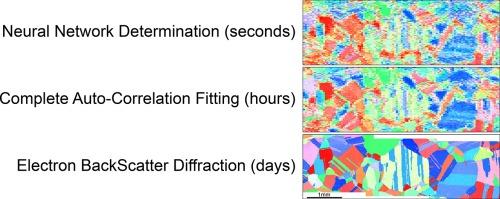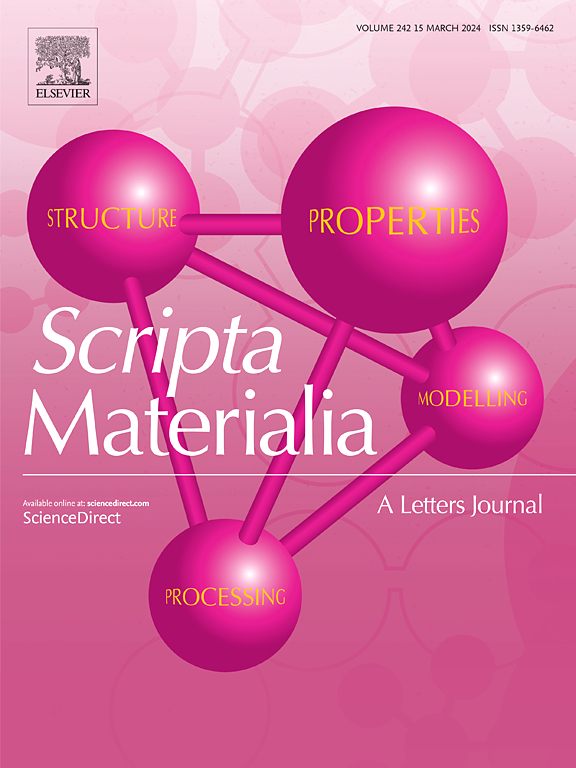开发神经网络,利用激光超声测量快速绘制晶体学取向图
IF 5.3
2区 材料科学
Q2 MATERIALS SCIENCE, MULTIDISCIPLINARY
引用次数: 0
摘要
晶体取向的快速测量在材料发现过程中至关重要,因为它有助于实时决策和质量控制。声学检测方法可快速表征微观结构,无需大量基础设施或费用--被称为空间分辨声学光谱法(SRAS)的激光超声波方法就是基于这一目的而开发的,它通过结合前向建模和穷举法来获得最佳取向,从而准确表征晶体取向。这种方法虽然有效,但计算要求高且耗时。我们引入了一种新方法,利用神经网络将测量到的声学信号分类为取向平面,从而大大加快了表征过程,并在实际的 Inconel 617 和 CMX4 试样上演示了分类方法。方位确定时间从大约 10 小时(蛮力搜索)缩短到 15 秒(神经网络),同时显示出 5.3∘ 和 13.8∘ 之间的平均平面角度差。本文章由计算机程序翻译,如有差异,请以英文原文为准。

Developing neural networks to rapidly map crystallographic orientation using laser ultrasound measurements
Rapid measurement of crystal orientation is critical in the materials discovery process as it facilitates real-time decision-making and quality control. Acoustic inspection methods rapidly characterise microstructure without the need for extensive infrastructure or expense – the laser ultrasonic method known as Spatially Resolved Acoustic Spectroscopy (SRAS) has been developed with this intent and accurately characterises crystal orientation by leveraging a combination of forward modelling and an exhaustive brute force process to obtain the best-fit orientation. While effective, this method is computationally demanding and time-intensive. We introduce a novel approach that utilises neural networks to classify measured acoustic signals into orientation planes to significantly expedite the characterisation process and demonstrate classification on real-world Inconel 617 and CMX4 specimens. A reduction in the orientation determination time from around 10 hours (brute force search) down to 15 seconds (neural network) was achieved while exhibiting an average plane angle difference of between 5.3∘ and 13.8∘.
求助全文
通过发布文献求助,成功后即可免费获取论文全文。
去求助
来源期刊

Scripta Materialia
工程技术-材料科学:综合
CiteScore
11.40
自引率
5.00%
发文量
581
审稿时长
34 days
期刊介绍:
Scripta Materialia is a LETTERS journal of Acta Materialia, providing a forum for the rapid publication of short communications on the relationship between the structure and the properties of inorganic materials. The emphasis is on originality rather than incremental research. Short reports on the development of materials with novel or substantially improved properties are also welcomed. Emphasis is on either the functional or mechanical behavior of metals, ceramics and semiconductors at all length scales.
 求助内容:
求助内容: 应助结果提醒方式:
应助结果提醒方式:


